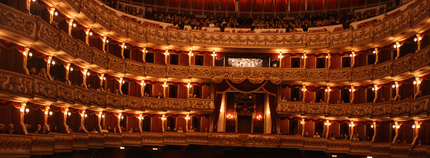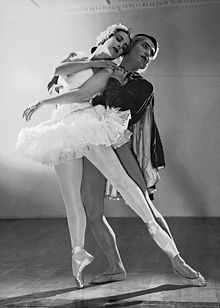Teatro Filarmonico

The Teatro Filarmonico or Verona Philharmonic Theatre is the main opera theater in Verona, Italy, and is one of the leading Opera Houses in Europe. Having been built in 1716, and later rebuilt after a fire of January 21, 1749, and again after the allied bombing of February 23, 1945.
History
Verona needed an opera house, so it was decided in the early 18th century to build a theatre worthy and large. Work began in 1716 and lasted 13 years. Finally, inauguration was on the evening of January 6, 1732, with the pastoral drama La Fida Ninfa by Antonio Vivaldi, a libretto by Scipio Maffei. The opera season became famous, and the performances led society events. But on January 21, 1749, fire eventually spread in the theatre. Rebuilt, the theater was re-dedicated in 1754 with the opera Lucio Vero by Neapolitan composer Davide Perez. The opera had a limited success. Corsican in the 18th century, during the French invasion, a long series of celebrations were held in the theater, such as the Cantata per la Santa Alleanza ("Cantata for the Holy Alliance") of Gioachino Rossini. The theater hosted international singers, and among its repertoire appear the most famous works of Italian and foreign melodrama.
On the tragic night of February 23, 1945, the theater collapsed under the Anglo-American bombing. The Academy Philharmonic announced that it would try to rebuild the theatre exactly as it had been before. The proceedings lasted a long time: the theatre was inaugurated again in 1975, with the opera Falstaff by Antonio Salieri.
The theatre still hosts in the winter season works, ballets and concerts. The operatic repertoire is one of the most famous for Italian operas and international (La sonnambula, The Barber of Seville, Tosca ...) and the works of non-repertoire (A day of the kingdom, Manon Lescaut of Auber, Loreley of Catalani ...).
International Singing Competition
Each year the International Institute for Opera and Poetry in association with Unesco[1] and Arena di Verona conduct the renowned International Singing Competition to select the lead roles for a premier production. The production first takes place in January at the Teatro Filarmonico and is then staged at the Arena di Verona during the summer.
The Competition is open to all singers regardless of nationalities making it one of the most competitive events. Applicants are required to know the entire opera in Italian by heart by the time of the competition.
The competition is held in collaboration with some of the leading opera houses, music academies and conservatoires, namely:
- Académie De La Roche D’Hys - Centre International De Rencontres Culturelles (Massingy Les Vitteaux - France)
- Accademia Filarmonica (Verona - Italy)
- Conservatorio Di Musica “E. F. Dall’Abaco” (Verona - Italy)
- Liszt Ferenc Zenemüvészeti Egyetem (Budapest - Hungary)
- Miagi Festival (Pretoria - South Africa)
- National State Opera (Budapest - Hungary)
- Opera Academy Verona (Verona - Italy)
- Opera Studio - Nederland (Amsterdam - the Netherlands)
- Seongnam Art Opera, Seoul Opera Theater (Seoul - Korea)
- Shanghai Conservatory Of Music (Shanghai - P. R. Of China)
- Théâtre Lyrichorégra 20 (Pierrefonds - Canada)
- Theater Krefeld - Mönchengladbach (Mönchengladbach - Germany)
- The State Tatar Academic Theatre Of Opera And Ballet (Kazan - Russian Federation)
- Wielki Teatr (Poznan - Poland)
- Zhou Xiao Yan International Opera Centre (Shanghai - P. R. Of China)
Each year the competition receives several hundred applications from some of the most talented young singers from around the world. Many singers made their names and careers by performing at Verona.
Repertoire (Repertorio)
- Giuseppe Verdi
- Giacomo Puccini
- Vincenzo Bellini
- Gaetano Donizetti
- Wolfgang Amadeus Mozart
- Le nozze di Figaro
- Così fan tutte
- Don Giovanni
- Idomeneo
- Gioachino Rossini
- Il barbiere di Siviglia
- La Cenerentola
- Mosè in Egitto
- L'italiana in Algeri
See also
References
External links
Coordinates: 45°26′17″N 10°59′24″E / 45.43806°N 10.99000°E
| ||||||||||||||||||||||||||||||||||||
